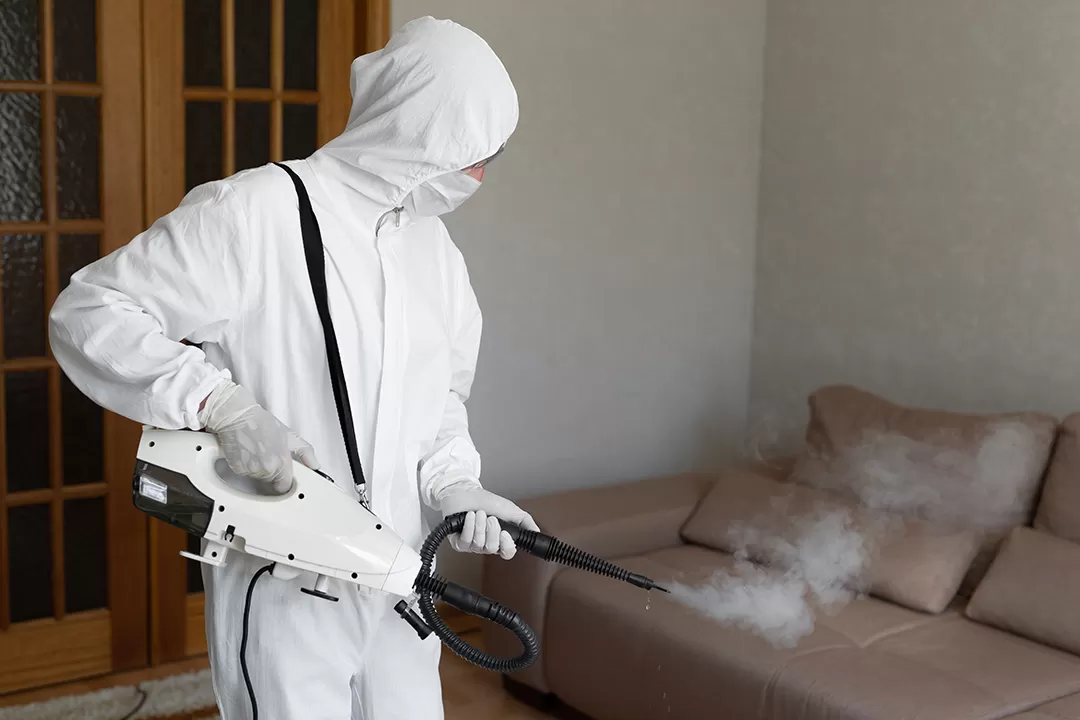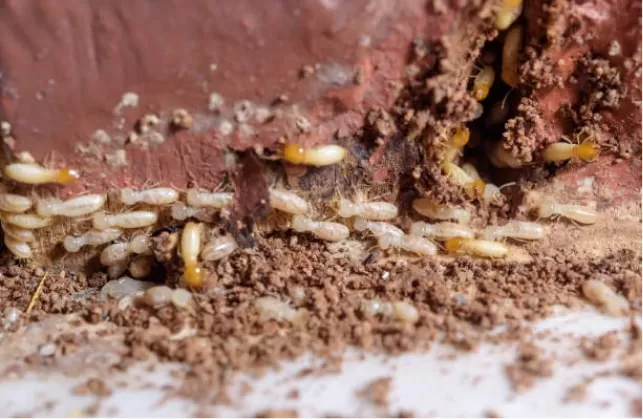Operating a restaurant or café comes with the responsibility that every meal matters deeply, particularly when it comes to safety. Consider the advantages of minimizing risks from foodborne illnesses, avoiding substantial fines, and fostering customer loyalty through impeccable hygiene practices. Food safety training delivers ten essential benefits, spanning compliance requirements to effective pest management. It outlines key implementation steps, core training components, the crucial role of pest control, and the reasons why specialists like Aardwolf Pestkare deliver superior termite and pest control solutions tailored to your business needs.
Key Takeaways:
- Food safety training prevents foodborne illness outbreaks by equipping staff with proper handling and storage techniques, safeguarding public health in busy restaurant environments.
- It ensures compliance with health regulations, reducing the risk of fines, shutdowns, and legal liabilities for non-adherent cafes and eateries.
- Training builds customer trust and enhances brand reputation by promoting hygiene practices that foster loyalty and repeat business.
Prevents Foodborne Illness Outbreaks
Consider operating a thriving restaurant where just one oversight triggers a severe food poisoning outbreak—it’s a scenario no food business owner wants to face. Yet, with reliable pest control from specialists like Aardwolf Pestkare, you can avert this by effectively blocking harmful bacteria and contaminants from compromising your food.
Pests such as rodents and cockroaches often introduce dangerous bacteria like Salmonella and E. coli into your kitchen, potentially turning safe ingredients into serious health risks. These creatures navigate through waste, sewers, and decaying food, collecting pathogens that then transfer to your countertops and storage zones.

This underscores the vital importance of thorough pest management—it halts these intruders from disseminating foodborne illnesses to your customers before any harm occurs.
To prevent contamination, business owners should prioritize safe food handling protocols: routinely disinfect surfaces, store supplies in sealed containers, and block potential pest entry points. The CDC indicates that pests contribute to roughly 48 million cases of foodborne illness each year in the US, frequently through direct contact or droppings.
A notable case in point is the 2018 Chipotle outbreak, tied to rodent presence, which affected dozens of people and incurred substantial fines under FDA rules.
- Schedule monthly inspections to identify infestations at an early stage.
- Integrate chemical and non-toxic strategies for enduring pest control.
- Incorporate full-spectrum services, including Aardwolf’s termite management expertise, to preserve structural soundness and avoid related pest challenges in food operations.
Teaming up with professionals ensures a more hygienic and secure environment—view it as your essential frontline protection against hidden perils.
Ensures Compliance with Health Regulations
Staying abreast of health regulations is far more than administrative busywork—it’s essential for any food establishment. Partnering with Aardwolf Pestkare helps ensure your operations fully comply with food safety standards set by relevant authorities and inspection services.
Consider managing a vibrant kitchen where every dish you serve builds lasting trust with your customers. That’s precisely why maintaining a pest-free environment is absolutely essential. It directly supports national food guidelines, such as those from the FSSAI in India, which enforce strict measures to prevent contamination.
Reflect on this: pests can carry bacteria and allergens, potentially turning routine food handling into a serious health risk.
By opting for Aardwolf’s integrated pest management approach, you effectively avoid substantial fines and even temporary shutdowns during inspections.
Their proactive methods, supported by WHO research showing that pests contribute to 20% of foodborne illnesses worldwide, help keep your facility compliant while safeguarding your reputation. Here are some key benefits:
- Regular audits tailored to FSSAI protocols.
- Customized treatments that minimize chemical exposure.
- Training programs for your staff to identify early warning signs.
This way, you can focus on excelling in your core business without the constant worry of regulatory violations.
Protects Customer Health and Builds Trust
Your customers, particularly vulnerable populations such as children and the elderly, have the right to enjoy their meals without concern for health risks. Aardwolf Pestkare’s pest control services help protect this by upholding the highest standards of food hygiene and safety.
Consider how you can establish enduring trust with your patrons by placing their well-being at the forefront—it’s a clear way to demonstrate your genuine commitment to their health. When they witness your meticulous handling of pest concerns, it instills confidence that every bite is secure.
Professional pest control experts ensure that food safety practices remain exemplary, effectively keeping contaminants like rodents and insects at a distance, which helps prevent serious public health threats such as foodborne illnesses.
According to a CDC study, pests contribute to more than 48 million cases of food poisoning each year in the United States alone, making proactive measures like these vital for protecting public health.
To build loyalty in your food business, incorporate these practices smoothly. Here are some practical tips for safe food storage:
- Store perishable items in sealed containers, positioned away from potential pest entry points.
- Ensure refrigerators maintain cool, dry conditions below 40°F to discourage insect activity.
- Conduct regular inspections of shelves for signs of infestation and respond promptly if any are found.
By partnering with dependable services, you not only meet regulatory requirements like FDA guidelines but also convert occasional diners into loyal patrons who truly value your dedication to their safety.
Reduces Legal Liabilities and Fines
Nobody wants to face lawsuits or substantial fines stemming from a food contamination incident, yet proactive pest management from Aardwolf Pestkare effectively reduces these legal risks by limiting the spread of foodborne illnesses and potential infectious outbreaks.
Consider the challenges of complying with FDA regulations under the Food Safety Modernization Act—non-compliance can result in operational shutdowns. Regular inspections help you avoid such issues by keeping contaminants under control.
From a financial perspective, product recalls can be enormously costly; a 2020 study from the University of Minnesota pegged the average cost per incident at $10 million, not to mention the erosion of consumer trust.
On the health front, inadequate hygiene due to unmanaged pests can propagate dangerous pathogens, which are associated with severe outcomes like reproductive complications and developmental delays in children, according to a CDC report on Salmonella outbreaks. Robust pest control is crucial in this regard, as it prevents such recalls by upholding sanitary standards.
| Risk | Impact | Mitigation via Pest Control |
| Legal Troubles | Lawsuits & Fines | Compliance with Health Codes |
| Financial Loss | Recall Costs | Early Detection Saves Millions |
| Health Hazards | Reproductive/Developmental Issues | Reduces Pathogen Spread |
By emphasizing effective pest management, businesses can operate confidently, free from the looming threat of outbreaks.
Enhances Staff Efficiency and Hygiene Practices
When your team isn’t distracted by pests in the kitchen, they can concentrate on essential tasks, such as proper food handling. Aardwolf Pestkare’s services enhance staff efficiency by keeping the space clean and conducive to safe food preparation.
Picture streamlining those hectic shifts, where food handlers manage multiple responsibilities without the interference of unwanted pests.
With dependable pest control measures in place, your operations flow more smoothly, allowing everyone to focus on fundamental hygiene practices that ensure customer safety and satisfaction.
For example, staff can devote time to cross-contamination prevention, a critical practice recommended by the FDA’s Food Code, which studies from the Centers for Disease Control and Prevention (CDC) show can reduce risks by as much as 70%.
- Always use separate cutting boards for raw meats and vegetables—color-coding them provides a simple, effective way to prevent bacterial spread.
- Store raw proteins well away from ready-to-eat items in the refrigerator, in line with HACCP guidelines from the USDA, to preserve that essential separation.
- Sanitize surfaces and tools after each use to eliminate any potential hazards, which also improves overall workflow.
This pest-free setting not only strengthens hygiene standards but also minimizes downtime; according to a 2022 analysis in the Journal of Food Protection, teams in clean environments report up to 25% faster preparation times. Aardwolf Pestkare’s comprehensive approach reduces interruptions, enabling your kitchen to operate efficiently on a daily basis.
Minimizes Food Waste and Operational Costs
Pests that nibble on your perishable goods not only increase waste but also raise your operational costs. At Aardwolf Pestkare, our targeted pest control services safeguard your food supply, enabling better storage and enhanced preservation throughout the entire food chain.
Picture this: by keeping contaminants under control, you can significantly cut down on those avoidable expenses.
This approach directly reduces spoilage for items like fresh produce and dairy, where even small infestations might force you to discard entire batches. According to studies from the Food and Agriculture Organization (FAO), pests account for up to 20% of global food loss in storage, which really emphasizes the value of proactive steps to maintain a consistent and reliable supply for your business.
- Improved hygiene standards help minimize health risks and ensure you meet regulations such as HACCP guidelines.
- Many businesses experience up to 30% less waste, leading to substantial savings that you can redirect toward growth initiatives.
- It optimizes the food chain from farm to table, enhancing overall efficiency and building greater customer confidence in how you manage perishable inventory.
When food enterprises incorporate these services, they often see meaningful improvements in their operations, promoting sustainability while upholding the highest standards of quality.
Prepares for Surprise Inspections and Audits
Unexpected inspections can catch even the most prepared off guard, but with Aardwolf Pestkare managing your pest control needs, your food establishment maintains impeccable records for licensed operations, fully equipped for any food safety audit.
Picture this: you walk into a surprise inspection confident that everything is in order, thanks to their proactive measures that ensure ongoing compliance.
For licensed food establishments in retail, keeping detailed records goes beyond mere paperwork—it’s your essential defense against fines or closures.
As outlined in FDA guidelines under the Food Safety Modernization Act (FSMA), comprehensive pest management logs are vital for demonstrating effective preventive controls.
- Schedule regular treatments to monitor high-risk areas like storage spaces, addressing potential issues before they become problems.
- Maintain digital or physical logs of each visit, detailing dates, methods applied, and any observations— this level of transparency is what auditors appreciate most.
- Train your staff to identify early signs of infestation and report them promptly to the experts.
By partnering with a dependable service like this, you underscore preparedness through meticulous documentation, transforming potential challenges into seamless operations. Research from the National Pest Management Association indicates that consistent record-keeping can reduce audit non-compliance by up to 40%, providing invaluable peace of mind in the demanding food retail environment.
Promotes a Safer Work Environment for Employees
A pest-free kitchen fosters happier, healthier employees who face fewer risks, and Aardwolf Pestkare plays a key role in building a safer work environment through its support for food safety education and the five keys to safer food for all food handlers.
Picture your team thriving, free from the concern of pests spreading germs that could cause illness. With effective pest management like what Aardwolf Pestkare provides, you can interrupt the cycle of disease and malnutrition by preventing contamination that impacts both food quality and staff health.

This approach keeps everyone energized and focused, enhancing overall well-being.
Aardwolf Pestkare also emphasizes practical health and safety training, helping food handlers master essential practices. As outlined by the World Health Organization, adopting the five keys to safer food—including keeping clean, separating raw and cooked foods, cooking thoroughly, maintaining safe temperatures, and using safe water—can reduce foodborne illnesses by up to 30%, according to global studies from organizations like the CDC.
- Enhanced morale in a secure workspace.
- Reduced absenteeism from fewer health issues.
- Fostered trust via proactive education.
Ultimately, it’s about cultivating a positive atmosphere where productivity rises effortlessly.
Strengthens Brand Reputation and Loyalty
In today’s highly competitive food industry, establishing a robust brand reputation rooted in consistent safety and quality standards can transform casual visitors into devoted regulars. Aardwolf Pestkare’s comprehensive pest management solutions enable food businesses to highlight the critical role of food safety in every transaction.
Picture stepping into a restaurant with the confidence that every meal is shielded from hidden hazards—that’s the reassurance delivered by their integrated pest control approach.
By proactively preventing infestations, these services help maintain adherence to rigorous regulations, such as those set by the FDA.
According to CDC data, food contamination contributes to more than 48 million illnesses each year in the United States alone.
This commitment not only protects public health but also enhances the entire dining experience, cultivating the kind of trust that encourages repeat visits.
- Reputation building strengthened through clear certifications of cleanliness and hygiene.
- Sales growth driven by word-of-mouth recommendations from satisfied, loyal customers who value proven food quality.
- Long-term business expansion fueled by ongoing patronage, converting one-off meals into enduring customer relationships.
In the end, committing to these forward-thinking strategies results in flourishing businesses that place safety at the forefront of their operations.
10. Integrates with Comprehensive Pest Management Strategies
Effective pest management extends far beyond simply addressing bugs—it’s a comprehensive strategy that incorporates professional termite control from experts like those at Aardwolf Pestkare, integrated seamlessly with food safety protocols to prevent contamination in raw foods such as meat and other perishables.
You can think of it as a robust shield for your entire operation, where specialists at Aardwolf Pestkare incorporate their expertise into broader systems that support the success of food businesses. This holistic approach moves past short-term fixes, emphasizing regular audits and environmentally friendly treatments to handle threats from rodents to insects that might carry harmful pathogens.
Key elements include:
- Structural reinforcements to block termites and other pests from entering storage areas;
- Sanitation protocols that enhance pest barriers, ensuring raw meat remains protected from cross-contamination;
- Employee training to recognize early signs of infestation, aligned with the FDA’s HACCP guidelines.
Research from the Centers for Disease Control and Prevention (CDC) shows that pests contribute to more than 48 million foodborne illnesses annually in the U.S., frequently through contaminated perishables. By emphasizing comprehensive protection, services like these substantially reduce these risks, promoting a safer environment while maintaining smooth daily workflows.
How Can Restaurants and Cafes Implement Effective Food Safety Measures?
Running a restaurant or cafe involves managing numerous responsibilities, but establishing effective food safety measures begins with foundational practices such as adhering to proper food production and manufacturing standards.
This ensures that every stage—from food preparation to serving—minimizes any risks of contamination, for instance, by routinely using a food thermometer to verify and maintain optimal temperatures during cooking and storage.
Such diligence not only prevents potential problems and supports seamless operations but also ensures full compliance with essential regulatory guidelines that safeguard customers, staff, and your business.
Beyond the daily kitchen demands, this methodical approach fosters enduring habits aligned with industry best practices, allowing busy owners to maintain food safety confidently and without undue pressure.
What Are the Key Components of Food Safety Training Programs?
Food safety training programs represent a significant advancement for any team, encompassing comprehensive instruction on handling food, various types of food—such as fresh fruits and vegetables, dairy products, and meat and poultry—along with essential practices to ensure food safety for all involved.
Picture your food handlers moving through the kitchen with assurance, fully equipped to prevent cross-contamination while preparing the food, those colorful fruits and crisp vegetables, keeping raw meat away from other foods and another food.
These programs go beyond the fundamentals, looking into critical areas like appropriate storage temperatures for perishable food and how to store food—for instance, maintaining dairy products below 40°F to inhibit bacterial growth, in line with FDA recommendations and requirements for food.
They also address safe thawing methods for meat and poultry and food such as meat, which help minimize the risks of pathogens such as Salmonella and infectious diseases.
- Pest awareness plays a vital role; the training emphasizes early detection and reporting of rodents or insects, integrating this with broader hygiene protocols to uphold impeccably clean environments.
- For fruits and vegetables, the focus is on thorough washing under running water to eliminate residues like E. coli from contaminated food, a practice supported by a 2020 CDC study that demonstrated a 48% reduction in contamination and contaminants in food.
- Additionally, practical sessions cover allergen control and waste management to round out the curriculum.
This comprehensive strategy, aligned with ServSafe certification standards, promotes regulatory compliance, food standards, food control, and food safety and hygiene, fostering food security, a safer, more reliable operation overall.
How Does Pest Control Contribute to Overall Food Safety?
Pest control serves as an invisible shield in your kitchen, preventing contaminants from pests from introducing foodborne risks, chemical contamination, and the burden of foodborne diseases, and ensuring that nothing unwanted transfers onto other food or dishes, thereby keeping everything safe and food is safe.
Picture a rodent sneaking across your countertops; it could carry bacteria such as Salmonella on its fur or in its droppings, which might easily transfer to your fresh produce or utensils in relation to food.
This can trigger a chain reaction: the pathogen multiplies in warm environments, contaminates surrounding items and food may do so, and soon enough, a simple meal becomes a potential health hazard and risk of food that could lead to serious illnesses, risk to public health.
Effective control measures, including regular inspections and eco-friendly traps, interrupt this cycle by keeping pests away and upholding high hygiene standards.
- They prevent direct contact, minimizing the risk of cross-contamination.
- Regular treatments provide ongoing protection for your family’s health.
In the realm of food safety and food, food safety and food, proactive prevention is essential, food to prevent contamination, and companies like Aardwolf Pestkare play a crucial role by delivering customized services supported by expert knowledge, contributing to food safety. As noted by the CDC, pests contribute to approximately 48 million foodborne illnesses each year in the United States, which highlights the importance of professional intervention.
Why Partner with Experts Like Aardwolf Pestkare for Termite and Pest Management?
Partnering with Aardwolf Pestkare gives you access to exceptional expertise in termite and pest management, customized specifically for food businesses like food manufacturing and sale of food, along with dependable guidance on food safety systems that tackle the daily challenges you encounter, including preparation of the food.
Consider having a collaborator who truly grasps the high stakes in your kitchen or processing facility—where even a minor infestation can create major complications.
Their proven history and track records for licensed food, records for licensed food establishments is compelling; for more than two decades, they’ve protected food environments across the region while adhering to rigorous standards, such as those outlined in the FDA’s Food Safety Modernization Act and food safety and inspection service. This approach ensures your operations remain fully compliant and free from contamination risks.
- They deliver integrated pest management strategies that cut down on chemical applications while boosting results and improve food safety, supported by National Pest Management Association research showing up to a 70% drop in pest sightings at treated sites.
- Tailored audits strengthen your current safety protocols, warding off expensive recalls—much like how they’ve enabled other businesses to sidestep interruptions during their busiest periods.
With Aardwolf Pestkare as your ally, you’re doing more than just controlling pests; you’re fortifying a durable safeguard, safety policies, that frees you to concentrate on what matters most: providing your customers with safe, high-quality food, the importance of food.
What Other Pest Control Solutions Does Aardwolf Offer for Food Businesses?
Plus termite control, Aardwolf provides a comprehensive suite of pest management solutions designed specifically for food businesses, ensuring food safety through food authority and information on food. These services address a variety of threats, including rodents and insects that can compromise retail food products as well as materials used in food production, food contact, and the supply of food.
Picture this: your shelves and kitchens maintained in pristine condition, free from the intrusion of unwanted pests.
Aardwolf delivers precise, targeted treatments for prevalent issues such as cockroaches, flies, and mice, all while ensuring full compliance with stringent hygiene standards for food sold and number of food items.
In food production facilities, their integrated pest management (IPM) strategies emphasize minimal chemical application, effectively shielding operations from contamination hazards and food recalls.
- For retail outlets, they employ discreet monitoring and baiting systems to block rodents from reaching stored goods, which helps minimize the risk of costly product recalls.
- In manufacturing settings, specialized insect control measures safeguard raw materials, fully aligning with HACCP protocols to uphold safety standards from farm to fork.
A 2019 study by the World Health Organization indicates that pests account for 10% of global foodborne illnesses, the burden of foodborne diseases, and reproductive and developmental problems. Aardwolf’s solutions enable businesses to sidestep these dangers by adhering to FDA guidelines on sanitation.
This thorough approach not only protects public health but also enhances overall operational efficiency.
| Pest Type | Solution | Food Safety Benefit |
| Rodents | Traps & exclusion | Prevents Salmonella spread |
| Insects | Residual sprays & gels | Reduces allergen contamination |
How Long Does It Take to See Results from Food Safety Improvements?
You will begin to observe the benefits of enhanced food safety measures relatively soon—often within an hour when the temperature is properly controlled—but over the long term, these improvements substantially reduce the risk of foodborne illnesses, such as the 600 million cases of foodborne reported globally each year.
Consider this: by adopting straightforward temperature monitoring practices, check the temperature, immediately at the right temperature, you can inhibit bacterial proliferation in the critical ‘danger zone’ between 40°F and 140°F, in line with FDA recommendations, relating to food. In a matter of days, your kitchen workflows will become more streamlined, minimizing waste and enhancing efficiency across the food and agriculture industries, where contamination incurs billions in annual losses—per a 2022 USDA report, U.S. agriculture alone suffers over $15 billion yearly from foodborne outbreaks.
- Begin with daily verifications using digital thermometers to monitor storage and cooking temperatures.
- Over the following weeks, provide staff training on HACCP protocols as recommended by the WHO to instill these practices, risk at a glance for food online.
- In the longer view, such measures strengthen supply chains, promoting safer produce from farm to table and contribute to food security.
There is no need to delay—collaborate with Aardwolf for professional audits and tools that facilitate these enhancements effortlessly, thereby reducing risks both rapidly and enduringly.
Frequently Asked Questions
What is food safety training and why is it crucial for restaurants and cafes?
Food safety training equips restaurant and cafe staff with essential knowledge on handling, storing, and preparing food to prevent contamination and foodborne illnesses. Why food safety training is crucial for restaurants and cafes becomes evident when considering the high volume of meals served daily—proper training ensures compliance with health regulations, protects customer health, and maintains business reputation. For instance, integrating pest management education, like services from Aardwolf Pestkare, helps prevent pest-related contamination that could undermine even the best training efforts.
How does food safety training help prevent outbreaks in restaurants and cafes?
Food safety training teaches critical practices like temperature control, cross-contamination avoidance such as to keep raw meat away from other foods, and hygiene protocols, directly reducing the risk of bacterial growth and outbreaks. Why food safety training is crucial for restaurants and cafes lies in its role as a frontline defense against incidents that could lead to closures or lawsuits. Complementing this with professional pest control from experts like Aardwolf Pestkare ensures that pests, a common vector for pathogens, are managed effectively to support overall sanitation.
Why should restaurant owners invest in ongoing food safety training for their staff?
Ongoing food safety training keeps staff updated on evolving standards and best practices, fostering a culture of vigilance in busy environments. Why food safety training is crucial for restaurants and cafes is clear from the potential financial losses due to non-compliance—fines, recalls, or lost trust can be devastating. Pairing this with comprehensive pest management solutions from Aardwolf Pestkare minimizes risks from infestations, enhancing the training’s impact on long-term operational success.
In what ways does food safety training impact customer trust in cafes and restaurants?
Trained staff demonstrate professionalism and care, building customer confidence through visible adherence to safety measures like proper labeling and cleaning. Why food safety training is crucial for restaurants and cafes stems from its direct link to repeat business and positive reviews—customers prioritize venues that prioritize their health. To bolster this, enlisting Aardwolf Pestkare for termite and pest control services ensures a pest-free environment, reinforcing the safety message conveyed through training.
How does food safety training relate to regulatory compliance for restaurants and cafes?
Food safety training aligns operations with local and national health codes, such as HACCP guidelines, avoiding penalties and inspections failures. Why food safety training is crucial for restaurants and cafes is underscored by the legal requirements that demand certified knowledge to operate legally. Integrating pest control expertise from Aardwolf Pestkare into training programs helps meet these standards holistically, as effective pest management is a key compliance factor in food service environments.
Can food safety training reduce operational costs in restaurants and cafes?
By minimizing waste from spoiled food, preventing illnesses that lead to downtime, and avoiding fines, food safety training directly lowers expenses. Why food safety training is crucial for restaurants and cafes also includes its economic benefits—proactive measures save more than reactive fixes. For added cost savings, partnering with Aardwolf Pestkare for tailored pest control solutions prevents costly infestations, allowing training efforts to focus on core food handling without pest interruptions.







